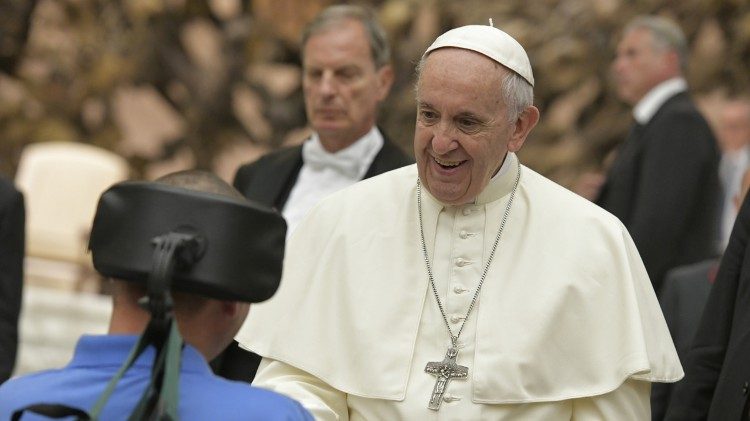The Keys to Being a Good Priest
Essential characteristics that every priest must cultivate to fulfill his mission of guiding, sanctifying, and serving the community with love and fidelity to the Church

A priest is more than a religious leader; he is a spiritual guide who must be committed to the mission of the Church and to the integral formation of the souls entrusted to his care. Throughout Catholic tradition, certain keys have emerged that define the qualities of a good priest, which should be guided not only by theological formation but also by dedication to the service of God and others.
Below, we present the fundamental keys that every priest must cultivate to effectively fulfill his vocation.
1. Deep Spiritual Life
The priest must be a man of constant prayer, living in intimate communion with God. His spiritual life must be nourished by the Eucharist, the Word of God, and personal prayer. As Pope Francis says, the priest is the “man of God,” and his personal relationship with Him must be the center of his life. A good priest strives to maintain his interior life, for only a man of solid faith can transmit that faith to his parishioners.
“The priest is called to be a man of prayer, of listening to God and his people, of constant and selfless service” (Pope Francis, Evangelii Gaudium, 2013).
2. Being Pastors Close to the People
Closeness to the community is another fundamental key. A good priest should not see himself only as a preacher from the altar, but also as a pastor who walks alongside his parishioners in their joys and sufferings. Pastoral care involves, in addition to teaching, accompanying, listening, and being close to the needs of each person.
The priest must be a model of compassion and generosity, following the example of Christ, who was close to the marginalized, the sick, and sinners.
“A close pastor, who leaves his comfort zone, who approaches his people with mercy, is the heart of the priestly vocation” (Catechism of the Catholic Church, 2002).
3. Fidelity to the Magisterium of the Church
A priest must be faithful to the teachings of the Church. This implies not only teaching doctrine correctly, but also living in accordance with it. The priesthood is not a path of adapting to the times, but a call to remain firm in the truths revealed by Christ, which are always valid.
“The priest must be the faithful servant of the truth that has been revealed to us, not of the fashions of the times” (Pope Benedict XVI, Sacramentum Caritatis, 2007).
4. Sanctification of Himself and of Others
The priest must understand his mission as that of a sanctifier, who not only celebrates the sacraments but also encourages others to live holiness. His life must be a constant witness to God’s presence and an example of charity and sacrifice.
Furthermore, the priest’s personal holiness is fundamental to helping others in their process of sanctification. The grace of the sacraments he celebrates must transform his own life and that of those who receive them.
“The priest is called to be holy so that his ministry may be fruitful. His life must be a reflection of God’s holiness” (Pope John Paul II, Pastores Dabo Vobis, 1992).
5. Be a Man of Charity and Service
Charity is one of the cardinal virtues that should characterize the priest. The Church teaches that the priest must be the first to love his neighbor, especially those most in need, for his calling is to serve, not to be served. He must manifest a concrete love for people, helping them find in God the answer to their suffering and needs.
“The priest is a servant, and his life must be marked by a love that translates into generous service to others” (Pope Francis, Evangelii Gaudium, 2013).
6. Capacity for Evangelization and Formation
A good priest must be an evangelizer. He not only preaches the word of God, but is also called to constantly train himself to transmit the truth of the Gospel in a clear, accessible, and experiential way. Ongoing formation in theology, spirituality, and culture is essential for him to guide the community on its journey of faith.
“The priest must be a former of hearts and a guiding light to Christ” (Catechism of the Catholic Church, 157).
7. A Sense of Sacrifice and Renunciation
Sacrifice is another essential aspect of a priest’s life. The call to the priesthood entails a renunciation of many aspects of one’s personal life in favor of a total dedication to the mission of the Church. This renunciation should not be seen as a burden, but as a generous response to God’s love.
“The priesthood is a gift, a service that entails renunciation. But this renunciation is not sadness, but the joy of living for Christ” (Pope John Paul II, Christifideles Laici, 1988).
The keys to a good priest encompass various dimensions of his life: spirituality, closeness to the community, doctrinal fidelity, charity, sacrifice, and evangelization. A priest who lives these virtues will not only be a good pastor, but a true reflection of Christ in the world. His vocation must be centered on God and oriented toward the service of others, always being a model of holiness and love.
By following these principles, priests can contribute significantly to the spiritual growth of the Church and the well-being of society, always guided by the example of Christ, the Great Priest.
Related

Francis. The Human and Religious Imprint of a Papacy
Isabel Orellana
24 April, 2025
5 min

Cardinal Felipe Arizmendi: With the Risen Christ, There Is Hope
Felipe Arizmendi
24 April, 2025
6 min

You Didn’t Give Up
Exaudi Staff
23 April, 2025
2 min

Sing, pray, give thanks
Mar Dorrio
23 April, 2025
2 min
 (EN)
(EN)
 (ES)
(ES)
 (IT)
(IT)

